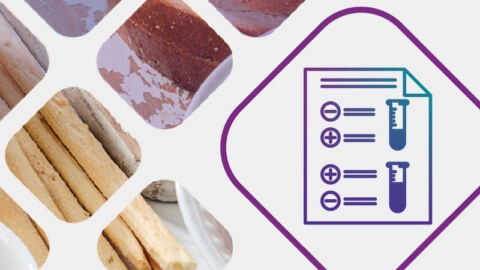Q: Can the Hippuric levels be an indicator of mold mycotoxins?
A: Not that I am aware of.
Q: Can Hippuric acid result from Lyme and other co-infections – bartonella, mycoplasma. i.e. Is this a non-discriminate marker?
A: I am not aware of any information showing these infections directly generating hippuric acid.
Q: What was it that indicates bacterial overgrowth?
A: Elevated levels within the Bacterial Marker section of the Organic Acids Test, particularly markers #10 – #13.
Q: High level of vanilmandelate can be due to ochratoxin?
A: Ochratoxin A is a known inhibitor of phenylalanine hydroxylase which could lead to low dopamine. Low dopamine could lead to low homovanillic acid (HVA). Low vanillylmandelic acid (VMA) is often seen with dopamine beta-hydroxylase (DBH) inhibition by clostridia bacterial toxins. A mycotoxin from fusarium mold called fusaric acid is a DBH inhibitor.
Q: My DC interpreted my high bacterial markers as bacterial overgrowth and suggested I avoid probiotic supplementation. However, I don’t have any signs of overgrowth in small intestines, and there are so many benefits to probiotics. What would you suggest?
A: The elevated bacterial markers on the Organic Acids Test (OAT) are often benefitted with probiotic use. Each person is different with regards to their reactivity to probiotics. For example, some people with small intestine bacterial overgrowth (SIBO) do not tolerate probiotics early on in their treatment, but this does not mean everyone needs to avoid probiotics who have elevated OAT bacterial markers.
Q: If hippuric acid is elevated, should I tell patients not to drink coffee for 3 days? So, it can be ruled out and hone in on toluene as the cause of elevation and not from coffee?
A: It is more than coffee consumption that could generate high hippuric. There are lots of vegetables and fruits containing chlorogenic acid that get converted into hippuric acid. My recommendation is to follow the directions in the organic acids test urine collection instructions. It will provide a list of foods to avoid.
Q: Any significance of extra low hippuric acid?
A: Not entirely sure. Maybe it could be linked to poor glycine conjugation and/or very low consumption of chlorogenic and/or benzoic acid containing foods?
Q: Could high 4-hydroxyhippuric also be due to eating daily blueberries?
A: Yes
Q: Does high tartaric and arabinose come from mold? Can it resolve with probiotics?
A: High tartaric is associated with aspergillus mold. Arabinose is linked to candida. Probiotics may be helpful in improving diversity of the microbiome which can help against overgrowth of fungus. However, it typically requires more than just probiotics to reduce or eliminate overgrowth of fungal species in the digestive system for many people. For example, the use of antimicrobial botanicals and/or prescription antifungals like Nystatin may be necessary.
Q: Do you find many issues in these bacterial markers in cases of atopic dermatitis? I have a case of a 14-month-old with severe eczema, and hadn’t yet considered an OAT for him, but now, I might.
A: This condition can certainly be linked to underlying digestive problems and toxins. I would strongly recommend doing an OAT, as well as a comprehensive digestive stool analysis, and food sensitivity assessment. There may be more tests needed, but these are a good place to start.
The material contained within this article and webinar is not intended to replace the services and/or medical advice of a licensed healthcare practitioner, nor is it meant to encourage diagnosis and treatment of disease. It is for educational purposes only. Any application of suggestions set forth in the portions of this article is at the reader’s discretion and sole risk. Implementation or experimentation with any supplements, herbs, dietary changes, medications, and/or lifestyle changes, etc., is done so at your sole risk and responsibility.




